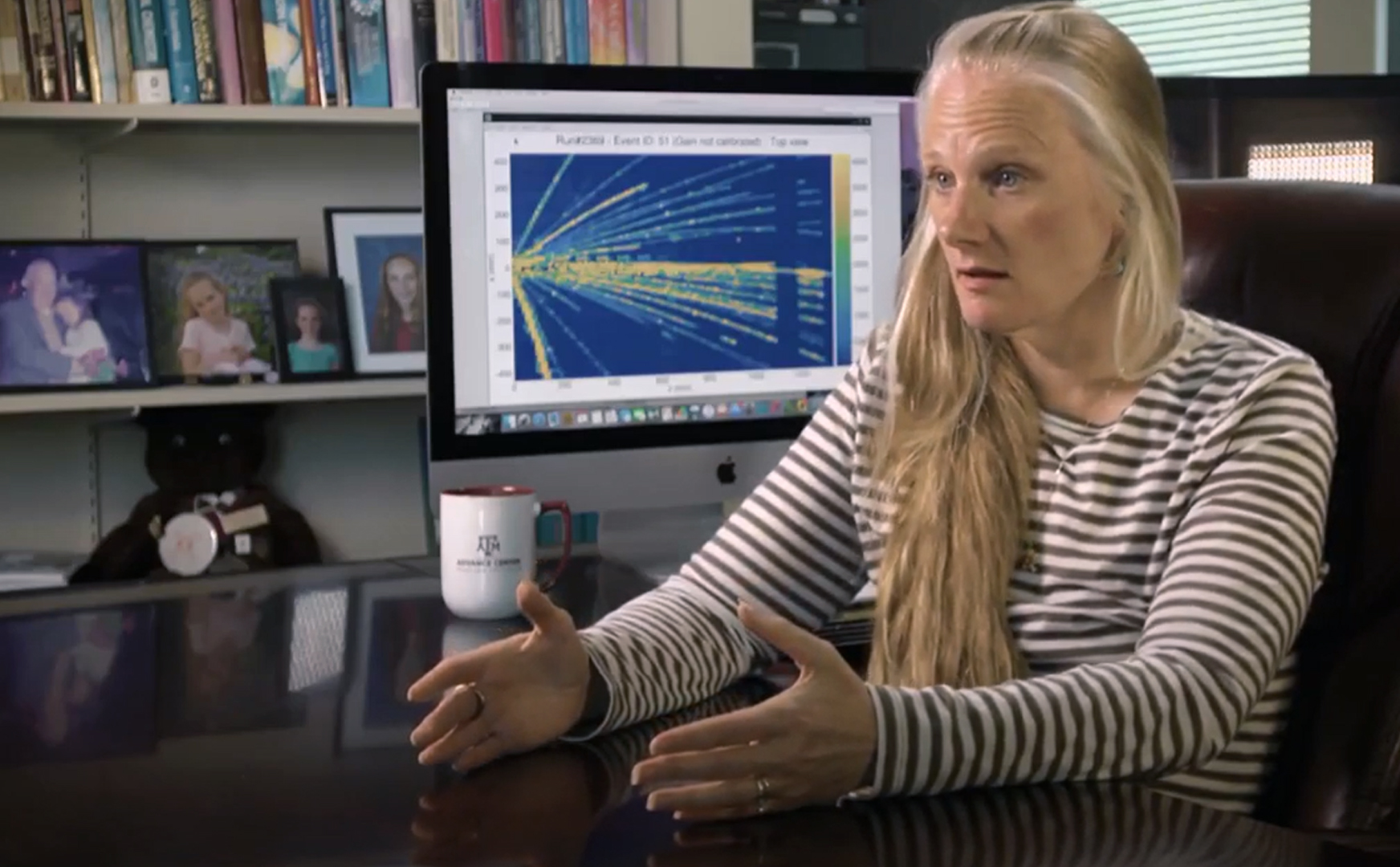
Dr. Sherry J. Yennello, Distinguished Professor and Regents Professor of Chemistry and director of the Cyclotron Institute at Texas A&M University, has been selected by the Southeastern Universities Research Association (SURA) to receive the 2023 SURA Distinguished Scientist Award.
Established in 2007, the annual award recognizes scientists who are conducting exceptional research in disciplines related to SURA, which is a consortium of 56 member universities that fosters collaborations to enhance members’ capabilities to undertake significant, transformative scientific research projects that no single institution can handle independently. Nominations are peer-reviewed by a committee and voted upon by members of SURA’s Board of Directors.
Yennello, an internationally renowned nuclear chemist and expert in heavy-ion reactions, joins Virginia Tech aerosol scientist Dr. Lindsey Marr in earning selection for the coveted honor this year. They will be presented with their awards during a reception at SURA’s headquarters in Washington, D.C., in conjunction with the upcoming Member Meeting in August.
“It is a great honor to recognize Prof. Marr and Prof. Yennello with SURA’s highest honor, the Distinguished Scientist Award,” said SURA President and CEO Dr. Sean J. Hearne. “Their work epitomizes the intent of this award to recognize individuals who advance collaborative research that has strengthened the scientific capabilities of the nation."
Yennello is cited “for research internationally known which significantly influences knowledge of the forces shaping our universe, with transformational contributions to our understanding of nuclear reactions induced by radioactive nuclei and the properties of neutron-rich matter.”
“I am incredibly humbled to receive this honor in recognition of the outstanding work of all the amazing students and Cyclotron Institute staff that I have been privileged to work with in pushing the frontiers of knowledge through discovery science that enables applications to society,” Yennello said.
Yennello, who joined the Department of Chemistry faculty in 1993, holds the Bright Chair in Nuclear Science and has served since 2014 as director of Texas A&M’s world-class Cyclotron Institute, one of the world’s leading nuclear science research facilities. Recognized among the “top 0.5% of researchers in nuclear chemistry,” Yennello has made transformational contributions to our understanding of nuclear reactions induced by radioactive nuclei along with the properties of neutron-rich matter and how the elements were made within the stars. She is a global authority in the use of isotopically selected beams to explore the dynamics and thermodynamics of nuclear collisions, including one of the first-ever experiments induced by a radioactive beam. She also oversees a leading U.S. program in developing alpha-emitting radioactive isotopes that are transforming nuclear medicine as an effective treatment for inoperable tumors.
In that pioneering experiment early on in her career, Yennello studied how the neutrons and protons in neutron-rich nuclei were redistributed during their reactions — groundbreaking work that opened a new frontier in nuclear physics research for studying the effect of the neutron-to-proton ratio on the dynamics and thermodynamics of neutron-rich matter. Her research regarding the dynamics and equilibration in nuclear heavy ion reactions was crucial to constraining the nuclear equation of state, a critical component in deciphering the signals that were received in August 2017 (GW170817) by the U.S.-based LIGO and European VIRGO gravitational wave detectors that recorded the first direct observation of gravitational waves a century after they were first predicted by Albert Einstein in his theory of general relativity. The combined efforts of the gravitational wave and nuclear science communities in constraining the nuclear equation of state together addressed one of “Eleven Greatest Unanswered Questions for the 21st Century.”
Yennello earned her Ph.D. in nuclear chemistry from Indiana University in 1990 and spent two years as a postdoctoral fellow at Michigan State University prior to coming to Texas A&M, where she is principal investigator for two U.S. Department of Energy-funded Centers of Excellence: a $13.2 million Cyclotron Institute-based nuclear science center and a $12.5 million, seven-institution Center for Excellence in Nuclear Training And University-based Research (CENTAUR) that was renewed in April for another five years. She also leads a $2 million, 15-institution, DOE-funded isotope traineeship effort, the Horizon-broadening Isotope Production Pipeline Opportunities (HIPPO) program.
A fellow of the American Association for the Advancement of Science (2012), the American Chemical Society (2011) and the American Physical Society (2005), Yennello’s many career awards to date include the ACS’s Glenn T. Seaborg Award for Nuclear Chemistry (2021) and Francis P. Garvan-John M. Olin Medal (2011), the Texas A&M Association of Former Students Distinguished Achievement Award for Administration (2019), the APS Division of Nuclear Physics Mentoring Award (2017), the Texas A&M Women’s Faculty Network Outstanding Mentor Award (2010), the Texas A&M Association of Former Students Distinguished Achievement Award in Teaching at both the university and college levels (2012 and 2008, respectively), the Sigma Xi National Young Investigator Award (2000), the National Science Foundation Young Investigator Award (1994), the Oak Ridge Junior Faculty Enhancement Award (1993) and the General Electric Faculty for the Future Award (1993).
For more information about Yennello and her research, teaching and service at Texas A&M, visit http://www.chem.tamu.edu/faculty/yennello.
Learn more about SURA, the Cyclotron Institute or nuclear chemistry research within the Texas A&M Department of Chemistry.
